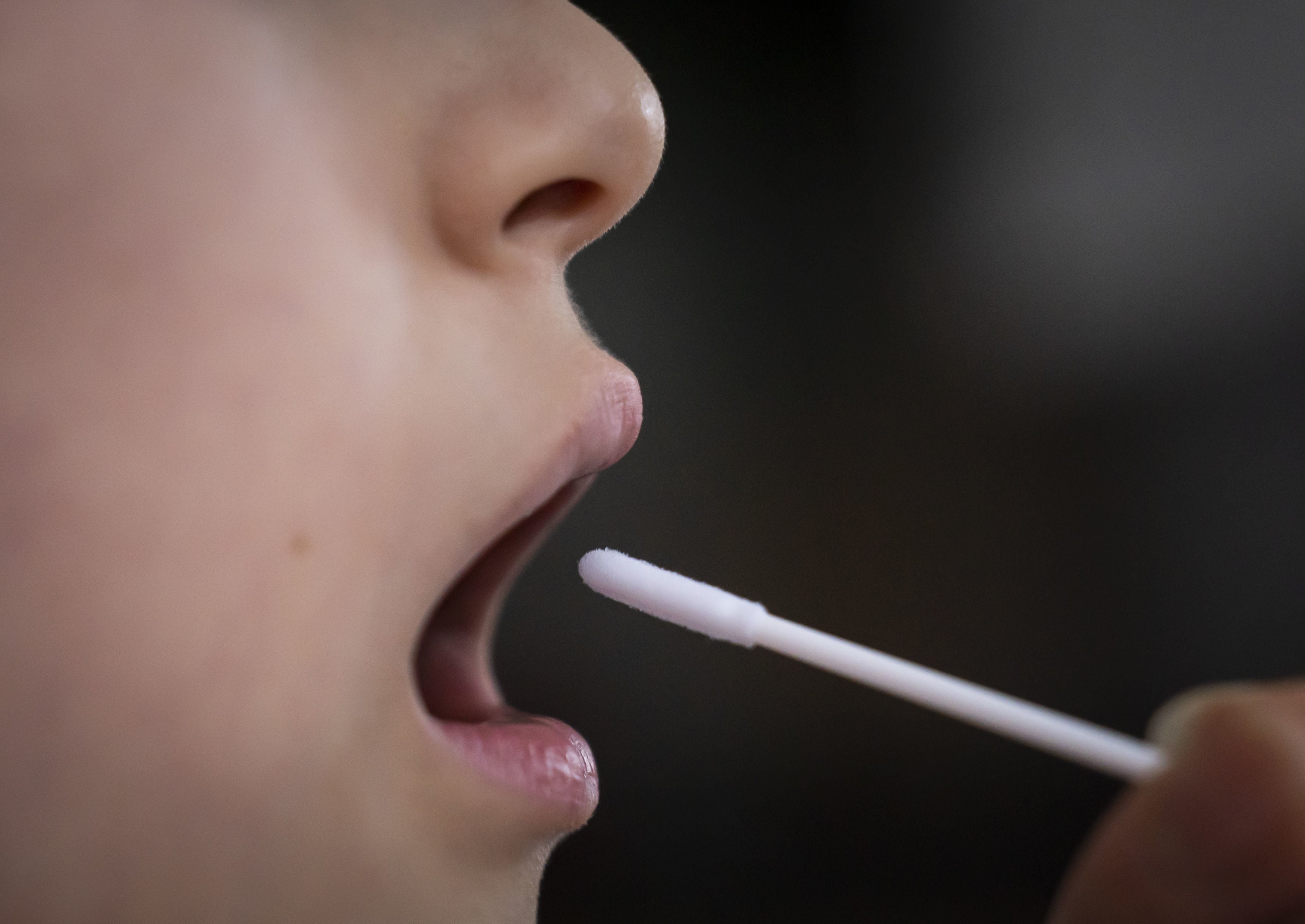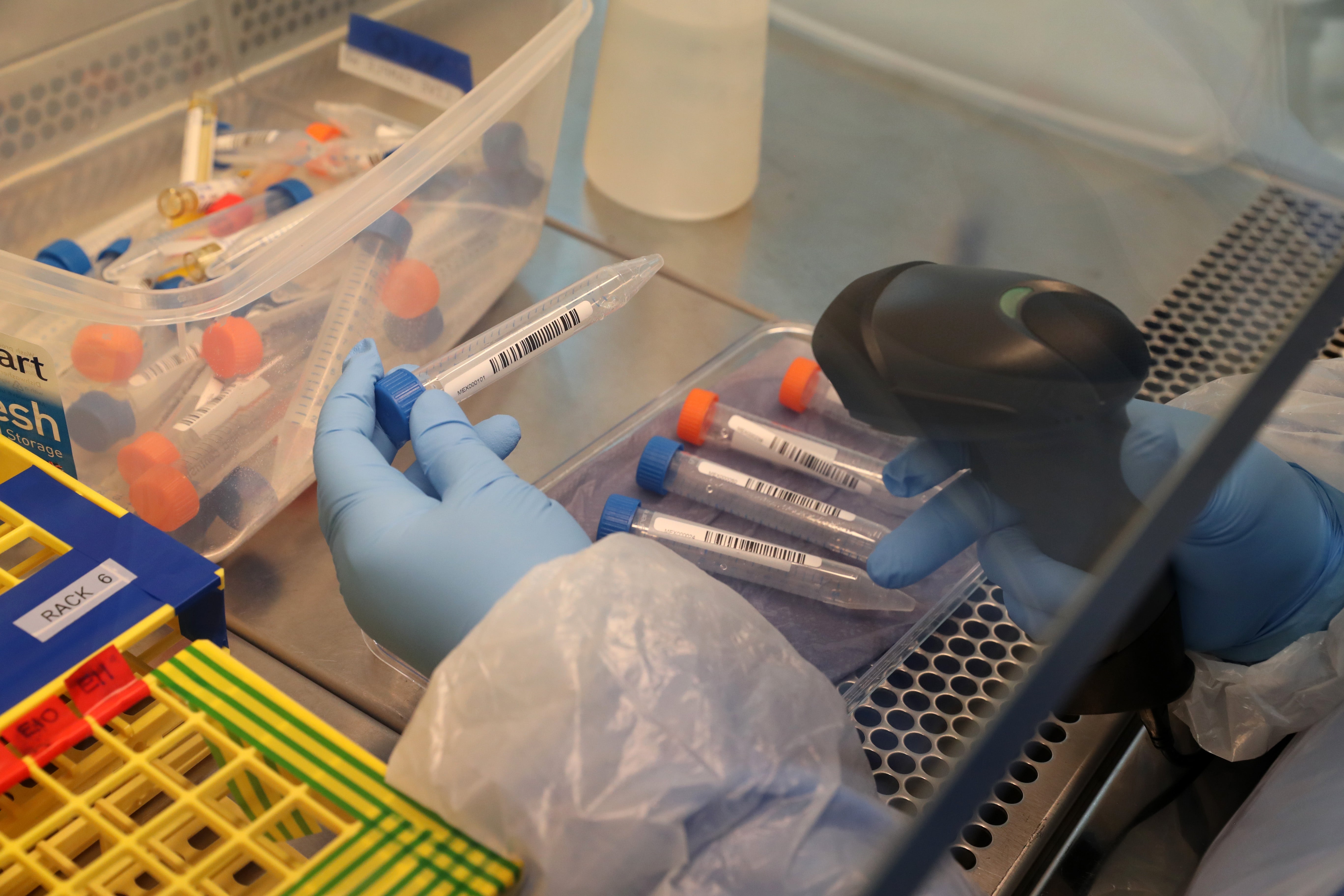Long Covid symptoms experienced by one in eight patients, research suggests
‘There is urgent need for data informing the scale and scope’ of long Covid symptoms, says Professor Judith Rosmalen

Your support helps us to tell the story
From reproductive rights to climate change to Big Tech, The Independent is on the ground when the story is developing. Whether it's investigating the financials of Elon Musk's pro-Trump PAC or producing our latest documentary, 'The A Word', which shines a light on the American women fighting for reproductive rights, we know how important it is to parse out the facts from the messaging.
At such a critical moment in US history, we need reporters on the ground. Your donation allows us to keep sending journalists to speak to both sides of the story.
The Independent is trusted by Americans across the entire political spectrum. And unlike many other quality news outlets, we choose not to lock Americans out of our reporting and analysis with paywalls. We believe quality journalism should be available to everyone, paid for by those who can afford it.
Your support makes all the difference.One in eight adults are likely to develop long Covid symptoms after being infected with Covid-19, a new study suggests.
New research has compared common symptoms of long Covid, such as chest pain, breathing difficulties, loss of taste and smell, in thousands of people who had been diagnosed with Covid-19 during the Alpha wave with those who hadn’t been infected.
Professor Judith Rosmalen from the University of Groningen, lead author of the study, said: “There is urgent need for data informing the scale and scope of the long-term symptoms experienced by some patients after Covid illness.
“However, most previous research into long Covid has not looked at the frequency of these symptoms in people who haven’t been diagnosed with Covid-19 or looked at individual patients’ symptoms before the diagnosis of Covid-19.”
Researchers collected data by asking participants to regularly fill out monthly digital questionnaires on 23 common long Covid symptoms from March 2020 to August 2021. This would have captured those infected with the Alpha variant.
The study found several common symptoms in people became worse or were newly developed three months after they had Covid. These included chest pain, difficulties breathing, pain when breathing, painful muscles, loss of taste and/or smell, tingling hands/feet, a lump in the throat, alternately feeling hot and cold, heavy arms and/or legs and general tiredness.
Symptoms which did not appear to get worse three to five months after infection were headache, itchy eyes, dizziness, back pain and nausea.
First author of the study Aranka Ballering said the “core symptoms have major implications for future research, as these symptoms can be used to distinguish between post-Covid condition and non-Covid related symptoms.”
She added: “Post-Covid condition, otherwise known as long Covid, is an urgent problem with a mounting human toll. Understanding the core symptoms and the prevalence of post-Covid-19 in the general population represents a major step forward for our ability to design studies that can ultimately inform successful healthcare responses to the long-term symptoms of Covid.”

Overall the study had 76,422 participants and 4,231 caught Covid-19. The results of people who had contracted Covid were compared to a control group of around 8,462 people without Covid and matched for sex, age, and the time they completed the questionaires.
The study then looked at the results for people who had reported symptom data prior to a Covid diagnosis and found 21 per cent of positive patients, compared to 8 per cent in the control group, had experienced at least one of the common symptoms three months after being infected.
This the researchers said suggests that 12 per cent of the Covid positive patients could attribute their symptoms to Covid.
Most of the data was collected before the vaccine rollout in the Netherlands.
The authors noted they will have only covered people infected with the Alpha variant or earlier variants and had no data on patients infected by Delta or Omicron. They also said due to asymptomatic infection, where people don’t experience symptoms, the prevalence of Covid-19 in the study may have been underestimated.
The study did also not look at “brain fog” which has since been found to be a common symptom of long Covid.
Prof Rosmalen said: “Future research should include mental health symptoms (e.g. depression and anxiety symptoms), along with additional post-infectious symptoms that we could not assess in this study (such as brain fog, insomnia, and post-exertional malaise).
“We were unable to investigate what might cause any of the symptoms observed after Covid in this study, but we hope future research will be able to give insights into the mechanisms involved.”





Join our commenting forum
Join thought-provoking conversations, follow other Independent readers and see their replies
Comments